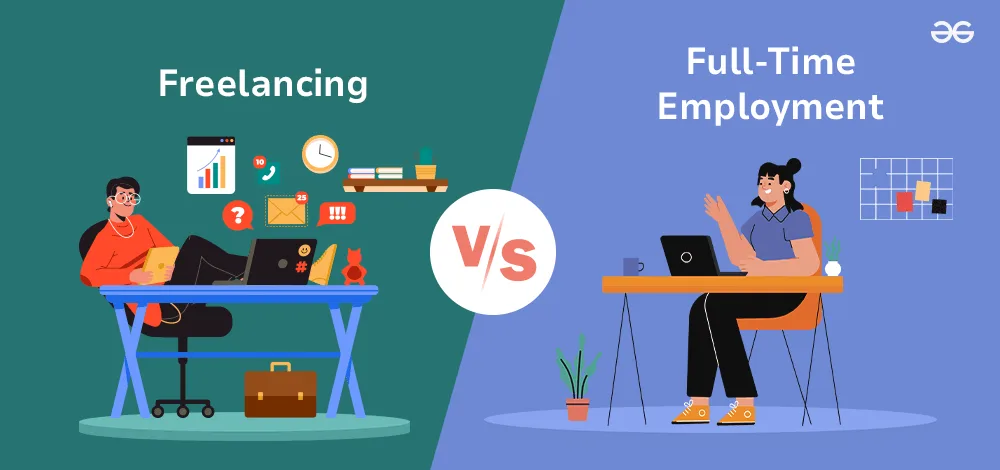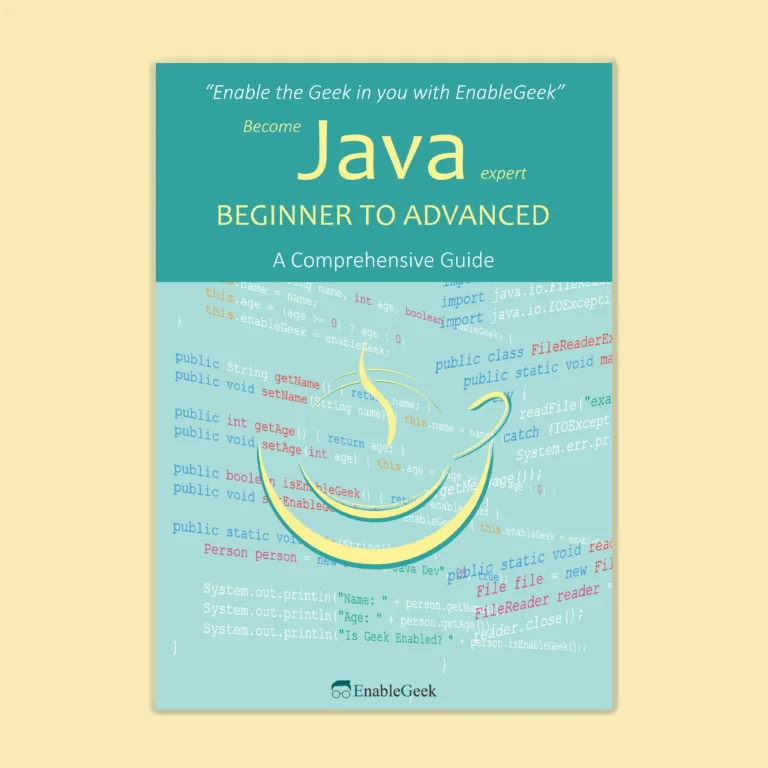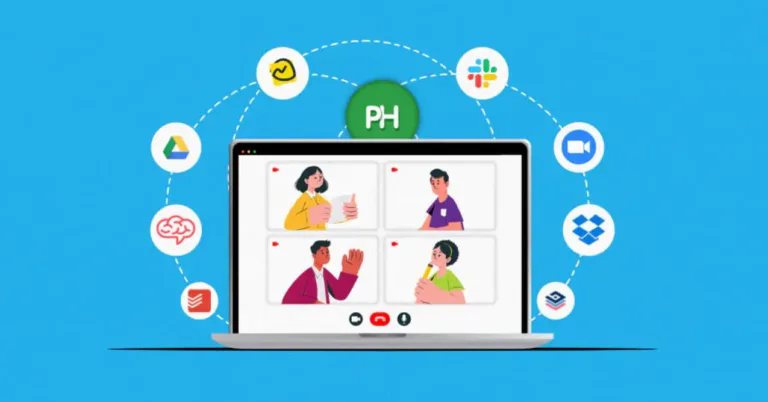Imagine the perfect workweek for you. Do you have a single employer or do you serve a range of customers? Do you work from home or in an office? To what extent does your daily routine need to be flexible? Depending on your preferred work schedule and work style, you must decide if working as a full-time employee or freelancer is preferable for you.
There is new terminology you may have heard of, but the work-from-anywhere trend is now booming globally. Freelance jobs and remote work are both popular. These two terms are occasionally used synonymously. There are certain distinctions between the two, even if there are some overlaps and similarities as well.
A location-independent worker, or remote worker, works from home or on the go. A freelancer is an independent contractor engaged by different companies to do certain tasks. The four main distinctions between these working methods are listed below to assist you in selecting the one that best suits your needs.
What is Freelancing?
Freelancing is a self-employed career where you offer your skills or expertise directly to clients on a per-project basis, allowing you to choose when, where, and how much to work. It covers diverse fields like writers, designers, web developers, and virtual assistants. The advantages of freelancing include flexibility, control, variety, and income potential. It also promotes a sense of ownership and freedom, allowing you to create your brand and realize your vision. However, there is no guaranteed paycheck, so it’s essential to know when and who to sell your services.
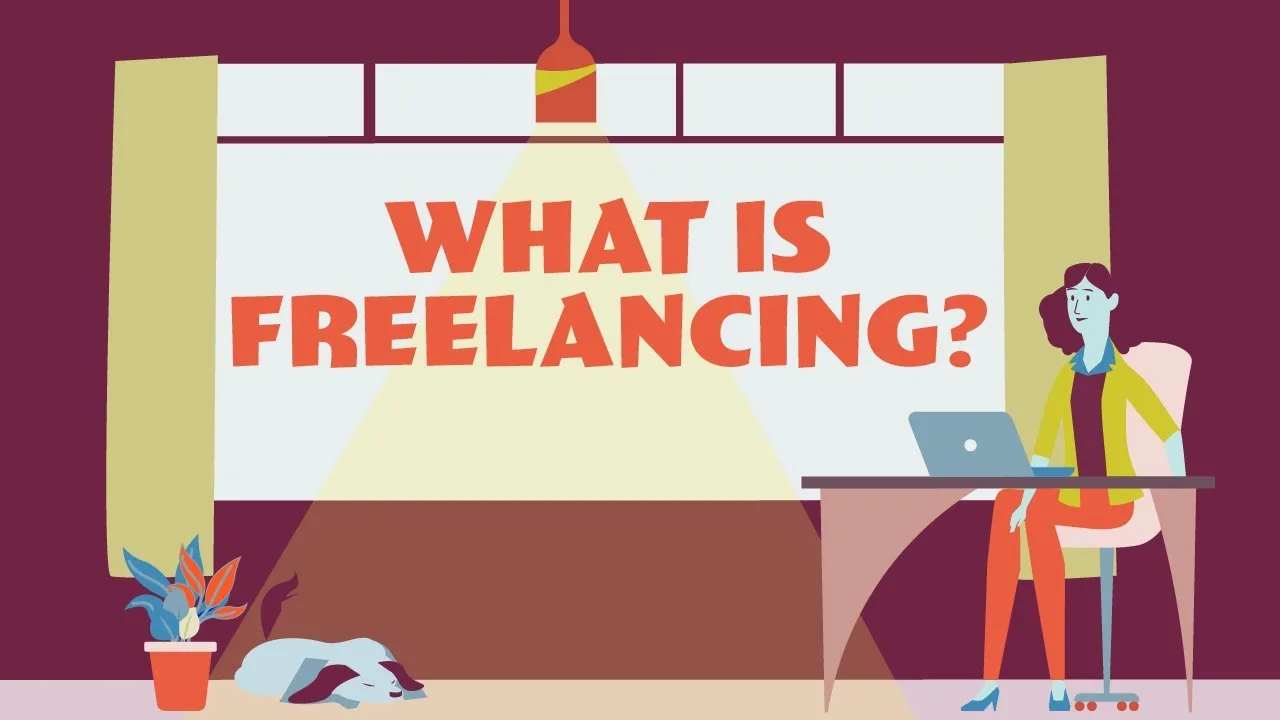
Self-discipline is crucial, as setting boundaries and avoiding distractions are essential for success. Benefits include health insurance, retirement plans, and other employer-provided benefits. Additionally, administrative tasks like bookkeeping can take time away from productivity. Overall, freelancing offers a unique opportunity for personal growth and personal growth.
What is Full-Time Employment?
Full-time employment involves working for a set number of hours per week, receiving a monthly salary, health insurance, paid time off, and retirement savings opportunities. It offers several advantages, including financial stability, a clear structure, a supportive work environment, and the ability to balance work and personal life. Full-time positions often have fixed schedules, paid holidays, vacations, and separation between private life and office hours.

Being part of a team fosters friendship and professional networks. However, there are limitations to full-time employment, such as limited flexibility, less control over workload, and a commuting and office environment. Additionally, salaries are usually fixed, and business policies and performance evaluations dictate raises. Overall, full-time employment offers a sense of belonging and responsibility, but it may not always be the best option for everyone.
Important Distinctions Between Freelancing and Remote Work
With the advent of the digital era, traditional work paradigms have changed and made room for freelance labor and remote employment. What distinguishes the two, though?
Teams that operate in-house vs those that operate remotely: Although both let workers work remotely, they are very different in organizational structure. A full-time remote worker is an employee of an organization who works during predetermined hours and keeps regular contact with the company.
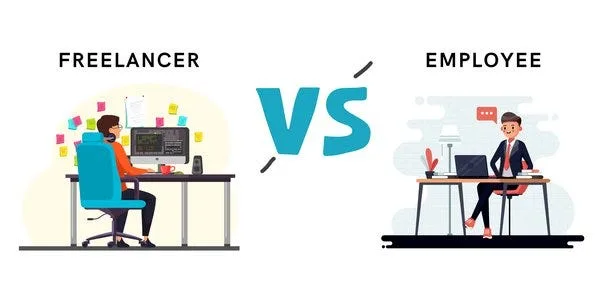
Freelancers, on the other hand, are self-employed individuals who manage several clients at once. Although they have greater freedom in choosing their work schedule, they do not have the same security as employees or remote workers.
Benefits and Drawbacks of Freelancing
Freelance work has advantages and disadvantages; what is a disadvantage for one person may benefit another. The suitability of freelance work for you will rely on your personality and professional objectives. Owners of their own companies, and freelancers have complete control over their employment, from determining what tasks and clients to take on to selecting their pricing. However, depending on the assignments you have lined up, your income may fluctuate frequently and the freelance lifestyle might be less stable, especially in the beginning.
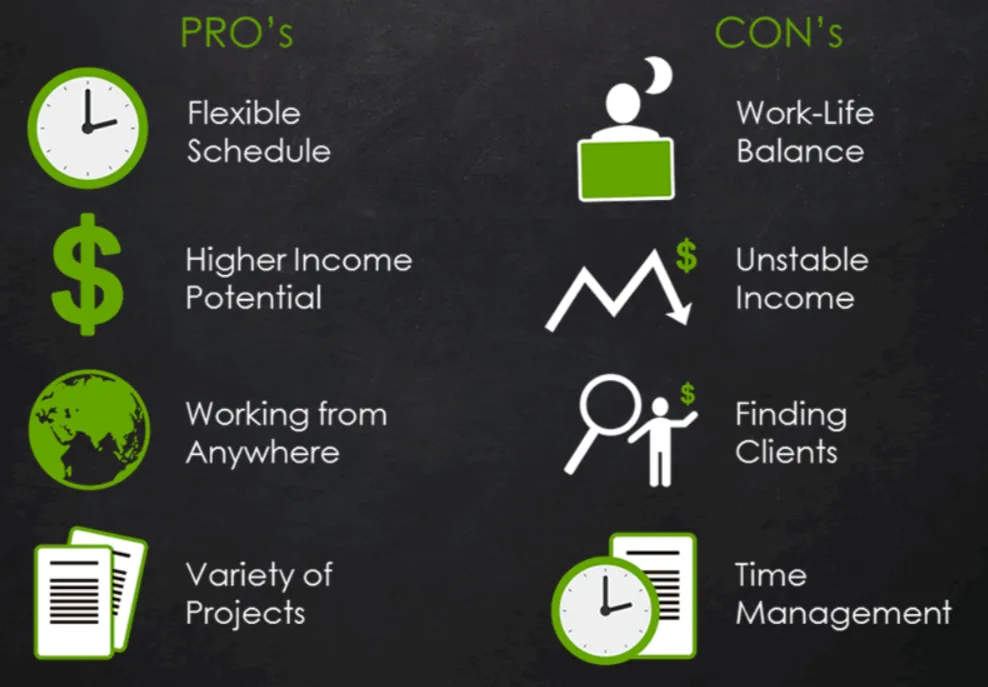
Pros of freelancing
In 2022, 39% of the American labor force, or 60 million Americans, worked as independent contractors. This shift is driven by the flexibility of remote work and the ability to choose projects. Freelancing offers outcome-based work, allowing flexibility in working hours and locations as long as obligations are met. The main benefits of freelancing include increased job satisfaction and satisfaction:
- Create a flexible timetable for yourself. Choose the hours that are most convenient for you, taking into account both your desired weekly workload and your availability. College students, digital nomads, and caregivers are the main demographics drawn to flexible schedules.
- Possess limitless earning potential. You determine your own pricing as a freelancer. You can choose to increase your fees as you develop into an expert by gaining more knowledge and expertise. Freelancers are in a better position to decide what to charge based on market rates, personal availability, and the demand for their skills than employees with fixed salaries who must request raises.
- Benefit from genuinely limitless vacation time. As a freelancer, you make your own schedule, so you don’t have to worry about how many vacation days you have left to take a trip. As long as it fits within your deadlines and personal budget, you determine when you want to work and when you want to take time off.
- Become recognized as an authority in your field. Effective independent contractors identify their specialty, focus on honing it, and focus on doing what they love and excel at. As you gain experience and establish a solid reputation, you may charge more as demand for your services grows and your calendar fills up with ideal clients. You can also earn Talent Badges and good client evaluations.
- Make the most of working remotely. Since they are self-employed, freelancers can work from anywhere in the globe and can thus fully profit from remote work. Even while companies are starting to favor remote work more and more, many workers still need to report in for meetings on specific days of the week or are only able to work remotely in particular locations.
- Select the customers you wish to serve. The ability to choose what projects you work on is a big benefit of freelancing; you can simply say no if you don’t want to work on a project. Work just on projects and with clients you are interested in. You look forward to starting work each day since your finished projects will contribute to the development of your portfolio and competence.
Cons of freelancing
Working as a freelancer involves making rules, meeting deadlines, and staying on top of your work. You must actively seek new clients and projects, seeking feedback and considering other projects. Initiative and patience are crucial when starting your own business, especially in a freelance operation where your skills are marketing services. However, there are some major cons to consider when considering working as a freelancer:
- Employment is not assured. Owners of their own companies, freelancers dedicate a portion of their time on contacting potential clients and making bids. As a project comes to a conclusion, your revenue becomes less predictable on a weekly basis, and you can have dry spells in between well-paying tasks. Although it is sometimes less stable than an employee’s, you may produce a steady revenue stream if you have a valuable ability and establish your name.
- Possible client payment problems. Billing and invoicing clients is the responsibility of freelancers; if you work directly with a client, you may have to deal with late or nonexistent payments, which can have a detrimental impact on your budget and revenues. Since you may wait to begin work until client funds are in escrow when using a site like Upwork, payment processing is simpler and more secure. Collaborate with the Resolution Center to resolve any client disputes you may have.
- Establishing relationships and gaining business takes time. A lot of the time, your first project is not your ideal one; you have to start your profession, promote yourself, network, and find clients. As a freelancer, you may go through the Talent Marketplace on Upwork to discover what positions fit your skill set. Sometimes in order to establish their name, new freelancers start off taking on lower-paying projects.
- Paying taxes may be difficult. The fundamental cause of some people’s skepticism regarding freelancing is the taxes of independent contractors. As a freelancer, taxes are not deducted from your income; instead, you must save and reimburse yourself during tax season, either by quarterly anticipated taxes or by reconciliation.
- No paid time off is offered. As a freelancer, you are allowed to take as much time off as you like, but you will not receive the same compensation as a full-time employee for that time off. As long as you are still able to meet deadlines and budget for future vacation costs, you are free to take time off during the workweek to plan excursions and do errands.
- Your own advantages are your responsibility. One reason freelancers may charge more per hour than employees is that, as an independent contractor, you are responsible for your own benefits, such as health insurance and retirement funds.
Benefits and drawbacks of having a full-time remote job
Like freelancing, working for a living has advantages and disadvantages. You sacrifice some autonomy and the potential for quicker professional advancement when you choose the security of a fixed salary and commit your whole workweek to one company. While some feel constrained, others find solace in the consistency of salaried pay—they always know how much money they’ll make each week and how many hours they have to work. What one individual considers restrictive may be seen as secure by another.
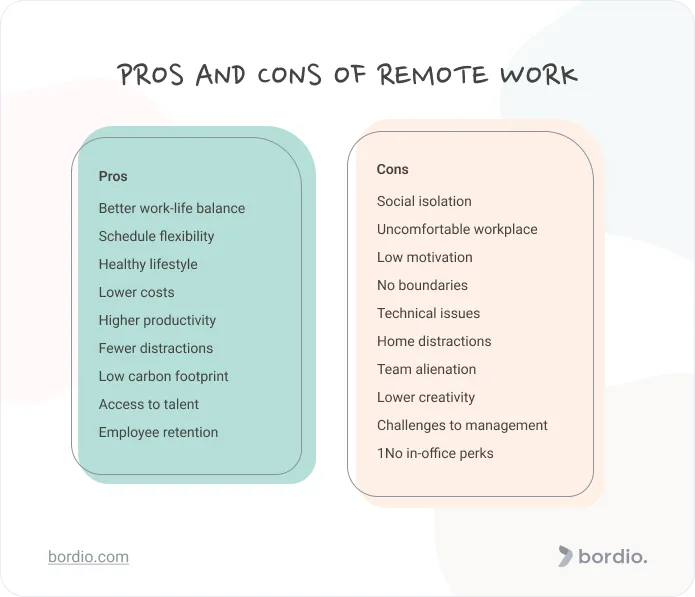
Advantages of full-time remote job
- Consistency and Earnings Safety: A set pay guarantees consistent income, which promotes financial stability. These packages also serve as a safety net for unanticipated costs, which promotes long-term well-being.
- Framework and Encouragement: Full-time positions have a defined framework with clear expectations in a friendly environment where coworkers mingle and mentors provide assistance while training is provided for the acquisition of diverse skills.
- Finding a balance (sometimes) between job and personal life The type of one’s job may have an impact on work-life balance, although full-time jobs are usually linked to set schedules, paid holidays and vacations, and a clear division between personal and work hours.
- The advantages of belonging to something greater than oneself Being a member of a team fosters friendships by creating a sense of unity among individuals. By exchanging ideas with coworkers, people may benefit from one other’s experiences and build invaluable professional networks.
Cons of Remote Employment
- Many employees struggle with work-life balance due to the long commutes, preparations, and family responsibilities. Working 40 hours a week and commuting for over 30 minutes can limit exercise and personal life. Remote workers can help by reducing the commute and time spent on preparation.
- Insufficient adaptability on your CV. Because it frequently takes a lot of work to move within a firm, even laterally, and acquire new abilities, as an employee, you may find yourself confined by your position. Your former roles on your CV frequently define you, whether you’re looking to move forward in your present employer or find a new one. Experience counts for more with companies than newly acquired talents.
- Routines may get boring. The option to work from home one day or at a coffee shop or coworking space the next is not something that many full-time employees have. It’s easy to get into a habit that is dull, uninspired, and artistically stifling.
- The employer sets the hours. Employers frequently have standard working hours, which are typically 9 to 5, Monday through Friday, regardless of the time zone in where your boss, headquarters, or business clients are located. This is true even if you work remotely. It’s possible that the typical 9 to 5 doesn’t match your schedule or your most creative and productive moments.
Skills and Qualities Needed for Freelancing

- Self-Motivation and Discipline: Freelancers must possess self-motivation and discipline to be their own bosses, maintaining a strong work ethic and meeting client expectations. They must be able to meet deadlines and monitor progress without a manager, despite distractions or obstacles.
- Marketing and Self-Promotion: Freelancing involves more than just work; it requires effective marketing and self-promotion skills. This includes creating a compelling online presence, networking, and showcasing expertise through a portfolio and well-crafted resume on freelance platforms, ensuring clients secure and a thriving business.
- Adaptability and Willingness to Learn: The freelance industry is constantly evolving, with changing client expectations, industry trends, and technology. To remain competitive, freelancers must be adaptable, open to learning new skills, and stay updated on industry developments and technical competencies.
- Financial Management: Freelancers must effectively manage their finances, including tracking income, setting aside taxes, and creating a budget, to ensure financial stability and security.
- Client Relationship Skills: Freelancers must prioritize building and maintaining positive client relationships through effective communication, active listening, and understanding client needs to ensure repeat business, referrals, and long-term success in the freelance world.
- Time Management and Organization: Freelancers often manage multiple clients and projects simultaneously, requiring effective time management and organization to meet deadlines and maintain high-quality work. Tools like calendars, to-do lists, and project management software can help stay on top of tasks.
Skills and Qualities Needed for Remote Employment

- Communication and Teamwork: Effective communication is crucial for successful remote work, as employees must rely on written, verbal, and virtual communication tools like email, messaging apps, video conferencing, and project management software. Strong interpersonal skills, active listening, and clear, concise communication are also essential for successful collaboration.
- Adaptability to Company Culture: Remote employees must adapt to the company’s unique culture and values, even from afar. They should foster a sense of connection with colleagues and stay updated on company policies and practices to integrate seamlessly into the team, ensuring they remain part of the larger organization.
- Technical Skills and Proficiency: Remote work heavily relies on technology, and remote employees should be proficient in using digital tools and platforms like video conferencing software, project management tools, and cloud storage. Technical proficiency ensures efficient task completion and independent troubleshooting of issues.
- Empathy and Inclusivity: Remote teams, despite their geographical and cultural diversity, require empathy, inclusivity, and cultural sensitivity to foster a positive and collaborative work environment, where employees should respect and appreciate their colleagues’ diverse backgrounds.
Selecting the Correct Career Path: Freelancing vs. Full-Time Employment
Now that you have a basic grasp of both full-time work and freelancing, let’s examine them in more detail and compare them in a number of ways to help you determine which choice best fits your requirements and objectives.

- Work Style and Personality: Freelancing is ideal for self-driven individuals who value variety and independence, while full-time employment is suitable for those who enjoy structure, collaboration, and maintaining personal life separation.
- Financial Considerations: Freelancing offers unpredictable earnings based on project size and number, requiring excellent marketing and sales skills. It’s your responsibility to pay taxes and secure benefits. Full-time employment offers regular paychecks, perks like health coverage, paid leave, and retirement contributions. However, earning potential may be limited by fixed salaries or annual increments given out annually during HR department reviews. Both options require excellent marketing and sales skills.
- Career Growth and Development: Freelancing offers opportunities to work on projects and develop new skills, but may lack structured training or mentoring programs. Full-time employment provides training, mentorship, and clear career progression within a company, but may rely on internal competition and organizational policies. Expanding professional networks requires initiative.
- Risk Tolerance: Freelancing involves risk-taking due to finding clients, managing finances, and dealing with inconsistent revenue. Full-time employment offers stability through a steady wage and benefits package, reducing the risk of job loss due to economic downturns or firm reorganization.
Techniques for Balancing Work and Life
Time management is crucial for maintaining a healthy work-life balance. It involves using planning tools, prioritizing tasks, and setting realistic deadlines. Establishing boundaries between work and personal life is essential, such as setting specific hours and communicating these limits with colleagues and clients. It’s also important to learn to say no to extra commitments that may affect your wellbeing or consume personal time.
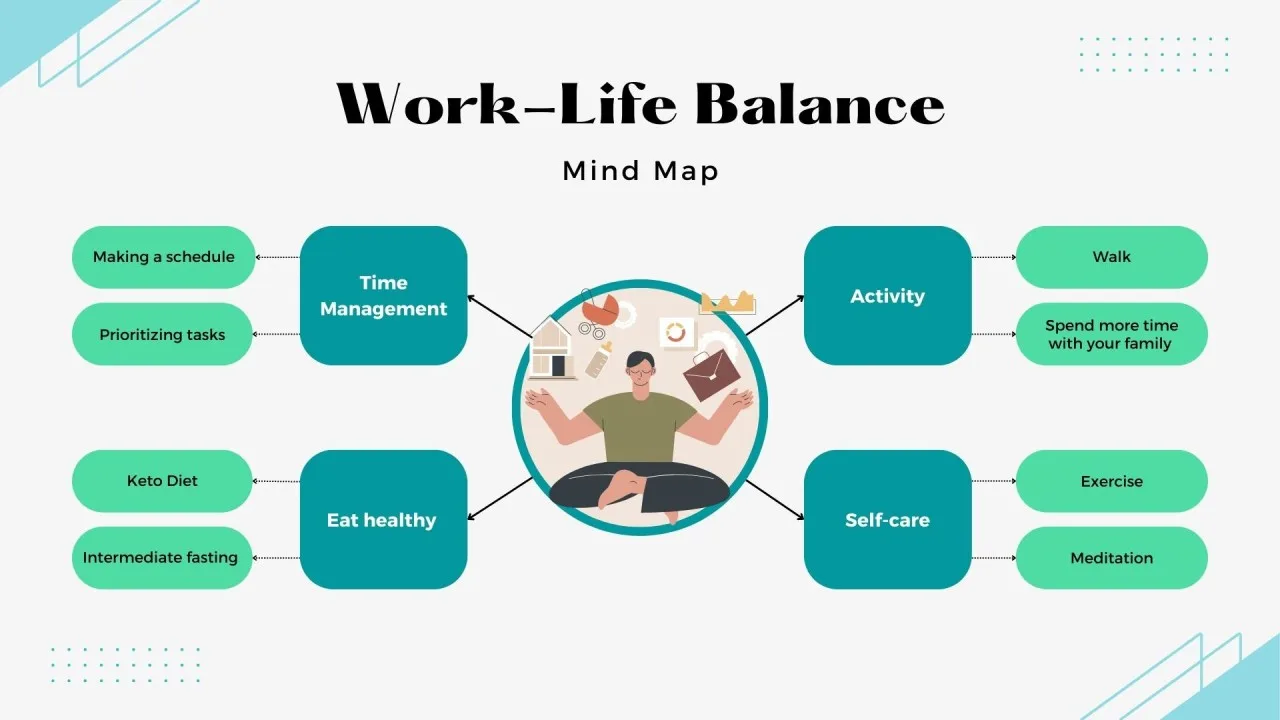
Regular breaks, such as short walks or stretching exercises, can help prevent burnout syndrome. Technology cleanse can be achieved by programming periods to avoid gadgets, including emails and notifications. Time off is essential for both physical and mental health, whether it’s paid time off or planned vacations. Self-care involves investing time and energy in hobbies, maintaining a healthy diet, exercising, spending time with loved ones, and learning relaxation techniques like meditation.
In summary, effective time management, boundaries, and self-care are essential for maintaining a healthy work-life balance.
The choice between full-time remote employment and freelancing is a personal one that is influenced by a number of variables, such as your risk tolerance, lifestyle choices, financial status, and professional aspirations. Unmatched freedom and the possibility of greater income are provided by freelancing, but there are no benefits and income volatility. However, full-time remote employment may provide less flexibility and autonomy in exchange for career security, consistent pay, and business support.
You may choose a course of action that best suits your goals by weighing the advantages and disadvantages of each option, determining your priorities both personally and professionally, and establishing realistic expectations. Whether you decide to work remotely full-time or as a freelancer, there are plenty of interesting prospects to have a flexible and meaningful career in today’s fast-paced workplace.

